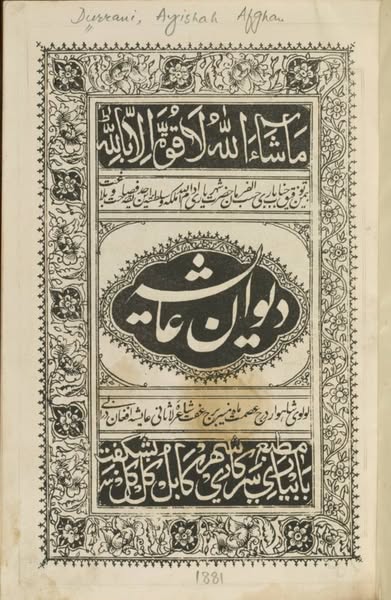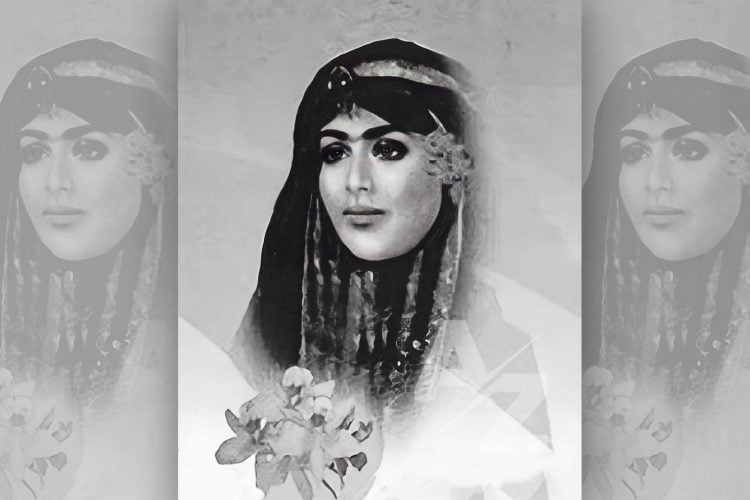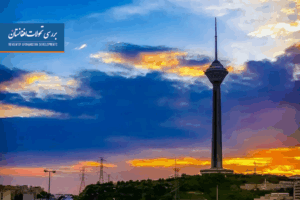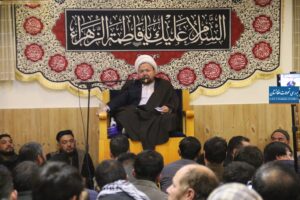Review of Afghanistan developments
Aisha Durrani, a poet who spoke Persian and lived during the 13th century AH, is recognized as one of the most educated and renowned women in Afghanistan’s history. She was born in the ancient city of Kabul, specifically in a region called Anchi Baghbanan, where she also spent her life and ultimately died. Aisha Durrani pursued studies in contemporary sciences and knowledge in Kabul. Although her first language was Pashto, she composed poetry in Persian, and her poetic book is well-remembered.
Aisha Durrani High School/Lycee is among the oldest high schools in Kabul, established in her honor and memory. Aisha Durrani is a notable figure whose poetry embodies not only feminine sensibilities and emotions but also explores themes such as piety, devotion to the Ahl al-Bayt (AS), and commendation of the Ashura event.
Although Aisha Durrani adhered to the Hanafi school of thought, she is recognized for her deep commitment and understanding of the Prophet’s family and the Twelve Imams. She stands as one of the prominent figures in the lineage of those who follow the path of guardianship. This observation distinctly illustrates that the cultural and historical backdrop of contemporary Afghanistan has been characterized by goodwill, religious tolerance, and a sense of cultural and linguistic unity. If this spirit were to be revitalized, it could emerge as a form of soft power in civilizational interactions.
Devotion to the Ahl al-Bayt (AS) in the poetry of Aisha Durrani
She is regarded as one of the pioneering female poets in Afghanistan, noted for her poetic diwan. The works of this female poet encompass a blend of mysticism, emotion, religious devotion, and admiration for the Ahl al-Bayt (AS). Aisha Durrani’s poems frequently express love for Imam Ali (AS) and the family of the Prophet (AS), and this deep connection has infused her poetry with the essence and spirit of resistance and Ashura.
Aisha Durrani, using straightforward yet impactful language, has conveyed her deep devotion to Imam Ali (AS), Hazrat Fatima Zahra (SA), Imam Hassan, and Imam Hussein (AS). She regards Imam Ali (AS) as the personification of justice, bravery, and mysticism, a perspective that is distinctly reflected in her poetry. Her depiction of Imam Ali (AS) is filled with mystical fervor and genuine affection. In one of her poems, it is mentioned:
O King of Najaf, the Lion of Allah, Haidar the Brave
O keeper of eternal secrets, knowledgeable of hidden truths
Both Haidar and Safdar, along with the conqueror of Khaybar
Your gaze breaks the ranks of the infidel army
Every monarch and beggar has been blessed by your generosity
For your kindness and vast array of gifts resemble a cloud brimming with pearls
You are the ultimate destination and purpose for all men or women,
O pride of the saints, treasure of generosity, guide for the seekers
Both the supporter and the victor, and the sovereign of authority
Your dust serves as a remedy for the ailing heart
Any heart that does not cherish love for Ali is in despair
Whoever fails to serve you shall face ruin
Both pure and sincere, and the servant at your threshold
There is no doubt that if God permits, paradise and gardens will be granted
Wherever fear and danger exist, the light of guidance illuminates
Be mindful of the unique and the singular
Aisha clutched the hem of generosity, reaching out for your grace
For your existence, gifts, kindness, and grace are plentiful.
Aisha Durrani has articulated her understanding and dedication to the twelve Imams in a remarkably beautiful ode. Additionally, she has composed an extensive ode in honor of Imam Reza (AS). A summary of this ode is presented here, the spiritual profundity of which reflects the mystical insight and profound religious knowledge of this esteemed lady poet:
You are the pearl in the vast ocean of meanings, O Ali Musa al-Reza,
The treasure of concealed secrets, O Ali Musa al-Reza,
the star illuminating the tower of certainty, the candle that lights both the heavens and the earth, you are the king with no limit, O Ali Musa al-Reza,
within the law, in truth, along the path of knowledge, the nightingale of the paradise garden, O Ali Musa al-Reza,
serving as both a guardian and a saint, an imam and a leader, both a trustee and a custodian, O Ali Musa al-Reza,
the manifest and the concealed in all affairs, you read the unwritten words, O Ali Musa al-Reza,
the healer of ailments, the remedy for the afflicted, the physician of compassion, O Ali Musa al-Reza,
I am drowning in a sea of anxiety, but because of your grace, I have hope Because you guarantee strangers, O Ali Musa al-Rida
I will not be blinded by your face of charity, O Amir al-Mu’minin
If you keep me away from you or call me to you, O Ali Musa al-Rida
Aisha hopes for your gift, O King of Khorasan, You are the eternal giver of grace, O Ali Musa al-Rida.

Ashura in Aisha Durrani’s poetry
Aisha Durrani’s poetry prominently features her exploration of the tragedy of Karbala, alongside her profound devotion to Imam Hussein (AS) and the Ahl al-Bayt. Her perspective on Ashura is both emotional and mystical, transcending conventional and ritualistic confines.
In his poetry, he not only depicts the emotional occurrences of Ashura, but also incorporates the moral and mystical lessons of this event within his verses. In numerous lines, he perceives the blood of Hussein ibn Ali (AS) as a representation of awakening, liberty, and sacrifice, while he regards the tears shed for the martyrs of Karbala as an indication of spiritual purity.
For Aisha Durrani, Karbala represents not merely a historical occurrence, but also a deeply spiritual and personal journey with which she resonates. Having lost her son as a teenager during one of the wars, her connection to the martyrs of Karbala is clearly reflected in several of her poems. In one of her verses dedicated to Ashura, Durrani expresses that the path to peace lies in turning to the five members of the Ahl al-Abba:
As I awaited the connection, my eyes grew wide. Where has the sea of generosity gone, and where is the reservoir in Eden? What has become of the burning and melting heart of the virtuous women? Where are the blossoms adorning the thrones of Hussein and Hassan? What of the children of Mustafa and the martyrs of Karbala? Where is the bloodied shroud of the martyred Shah and Qasim? I find myself submerged in the sea of pilgrimage, where there is nothing alongside me. Aisha is in distress. Where is the assistance from the five people?
Aisha Durrani’s poetry style
In contrast to numerous female poets of her time, Aisha Durrani composed poetry in classical Persian and explored traditional forms including ghazal, masnavi, and rubai. Her linguistic style is shaped by the works of poets like Jami, Attar, and Hafez. Nevertheless, her unique feminine perspective and personal experiences have endowed her poetry with a separate and recognizable identity. The representation of women in Aisha’s poetry is apparent not only in the role of the beloved but also as the speaker, the thinker, and the religious philosopher.
The essence and emotion of femininity, along with the sorrow of a lost child, have elegantly maintained the expression of her maternal spirit within her poetic form. Through her feminine language, she narrates the tale of Ashura, weeps, grieves, and elucidates the concept of martyrdom. In the realm of Persian literature, there are very few female poets from the Hanafi school who have addressed religious subjects, particularly Shia and Ashura, with such precision.
Related articles
Afghanistan during Muharram 2025
Final point
Aisha Durrani is a woman who discovered her voice amidst the patriarchal history of her era, and her poetry serves as a unique example of the fusion of femininity, mysticism, and devotion to the Ahl al-Bayt (AS) within Persian literature. She refers to the event of Ashura not merely as a historical occurrence, but also as a moral, humane, and mystical lesson, as well as a symbol of women’s resistance against oppression and aggression. Aisha’s poetry continues to inspire women in contemporary Afghan society to pursue their own paths along the clear route of morality and spirituality.
Follow us on social Media:

















